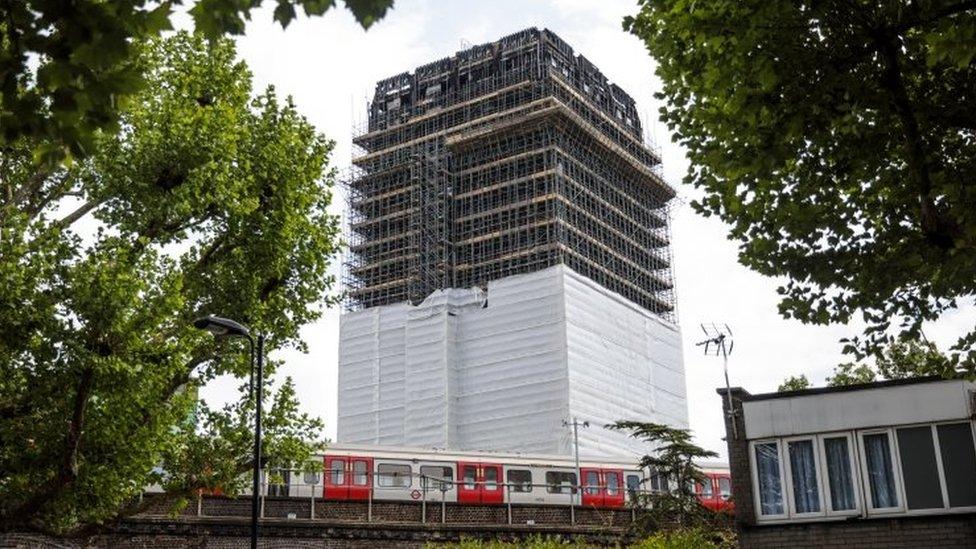Private high-rise cladding 'could take years' to replace
- Published
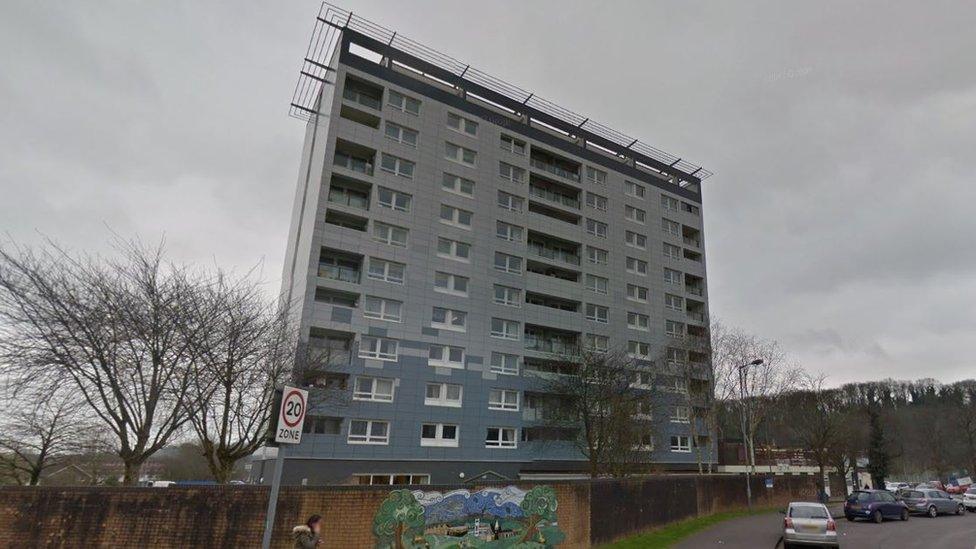
Milton Court in Newport is one of the three tower blocks to have failed fire safety tests
Residents in private high-rise blocks may have to live with unsafe cladding for years because of wrangling over who should pay to replace it, Wales' chief fire advisor has said.
Des Tidbury said the issue was about liability following tests carried out in the wake of the Grenfell Tower fire.
It is almost a year since the blaze, which caused the deaths of 72 people.
The Welsh Government said it wanted to know how block owners and developers would fund the changes.
Fifteen buildings in Wales were found to have the same type of aluminium composite cladding which engulfed Grenfell - 12 of them being private sector blocks comprising of about 700 flats.
The others were social housing blocks in Newport which are being adapted with £3m in Welsh Government funding.
The blocks at Ringland, St Julians and the Gaer have been retrofitted with sprinkler systems and fire alarms - and the cladding will be removed.
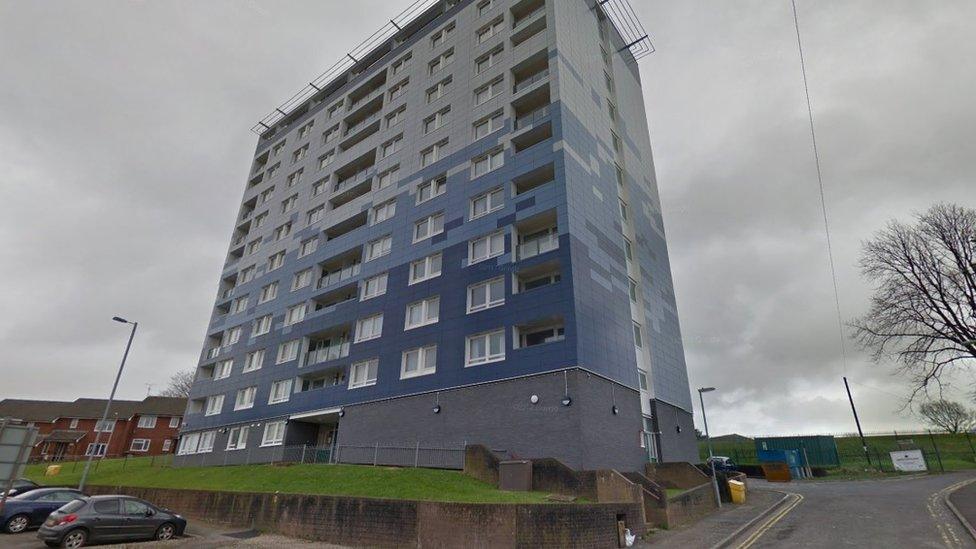
Work to replace the cladding on Hillview in Newport begins in August and will take about 12 weeks
But on the seventh floor of 11 storey Hillview flats in the Gaer, resident David Price remains concerned.
"At the present moment, this building is unsafe. The cladding is still on the building," he told BBC Wales' Good Morning Wales.
"I know it's not a five minute job. I understand all that. But at the present moment, at this time, this is an unsafe building.
"That's not just me [saying that] - that's the majority of the residents here, and probably the ones in Ringland and in St Julians."
But at least Mr Price is in social housing where work is being carried as soon as possible to make it safe.
Private sector confusion
In privately-owned blocks in Wales, uncertainty over who will pay for improvements remains.
There have been calls by the Residential Landlords Association (RLA) for the Welsh Government to offer short-term loans to the privately owned buildings for remedial works, while the issue of liability is ironed out.
Mr Tidbury said different types of tenancy contracts, complicated management arrangements and where responsibility lies for communal areas formed part of the issue.
"It's extremely complex and can only be looked at building by building," he said.
"It could be that a landlord in good faith commissioned the work to be done, but the cladding that was used was of the sort that may have been used at Grenfell, so issues around that.
"Then who is responsible… was it the landlord for commissioning the work or indeed was it the contractor for putting up the cladding?
"And then you look at the testing regime for some of the products and materials, that's also been called into question.
"In the end you might never get to the point where you fully identify who is responsible, it could take years and years and years."
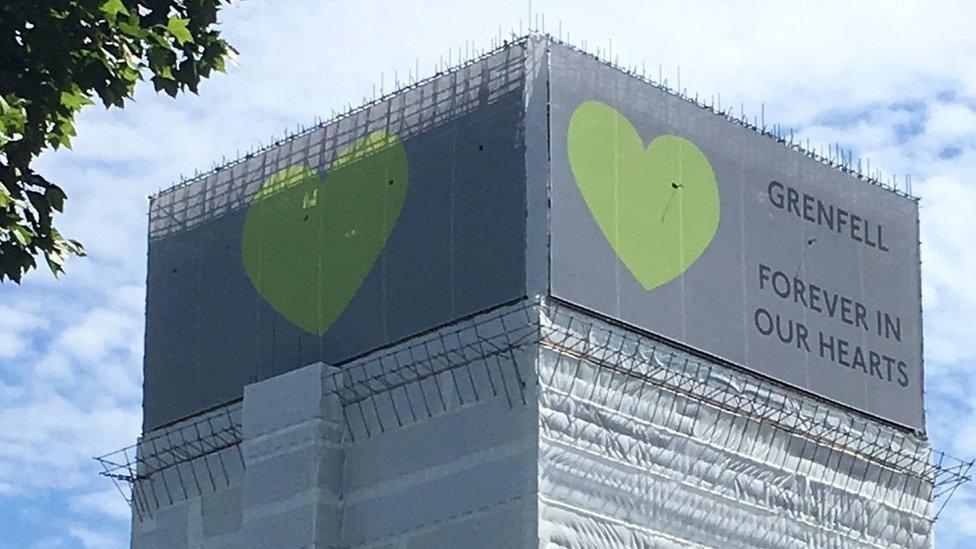
Boroughs have had to spend millions improving building safety
Although fire safety features, such as night-time walking patrols and extra alarms, are being introduced in affected buildings in the shorter term, the costs are falling on leaseholders in some cases.
There have been warnings some homeowners cannot sell or re-mortgage their apartments due to the cladding issues.
Douglas Haig, vice-chairman of the RLA, said: "Often the freehold shell of the building is sold to an independent company or owner - sometimes offshore - and then individual leases are owned by owner-occupiers or sometimes private landlords, so that who is responsible ultimately for paying for replacement of cladding is difficult to know immediately.
"There's going to be a carousel of blame going on and it could take I think up to a decade for people to resolve this and the problem is, we can't wait that long to have people living in properties which ultimately have to have the cladding replaced."
Work to remove cladding has been completed or begun at a number of other high-rise residential buildings in Wales which - although they passed the initial tests ordered after Grenfell - still fall short of fire safety standards.
A Welsh Government spokesman said: "We have worked closely with landlords, owners and managing agents, the Welsh fire and rescue services and local authorities to identify all high-rise, residential properties affected and ensure people living there are safe.
"We have invited developers and building owners to meet to explain how they intend to carry out remedial works on their properties, without tenants and leaseholders having to foot the bill."
- Published23 May 2018
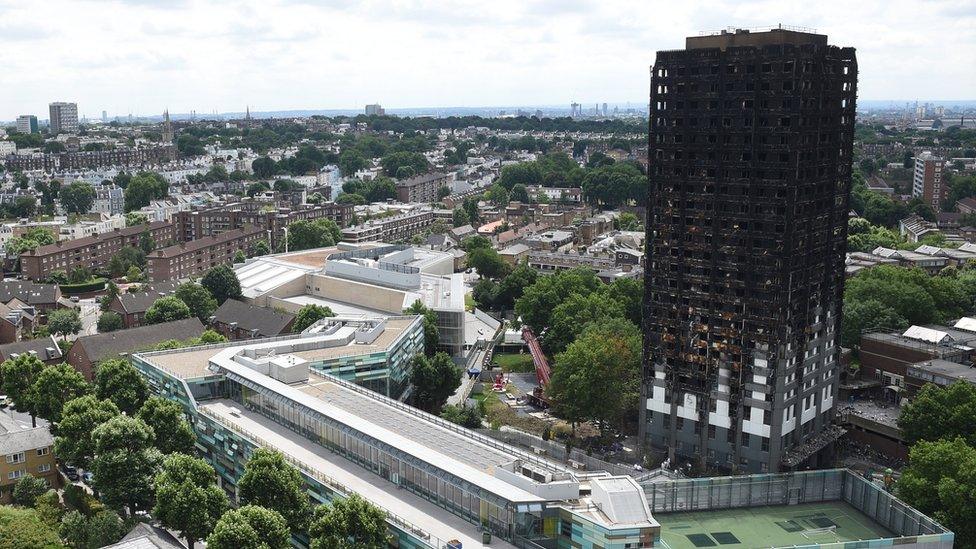
- Published22 May 2018
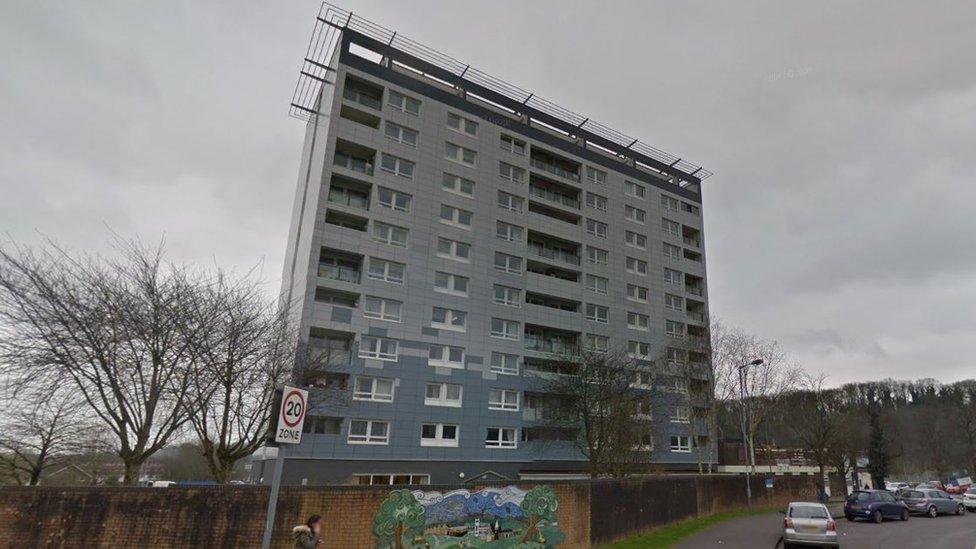
- Published27 July 2017
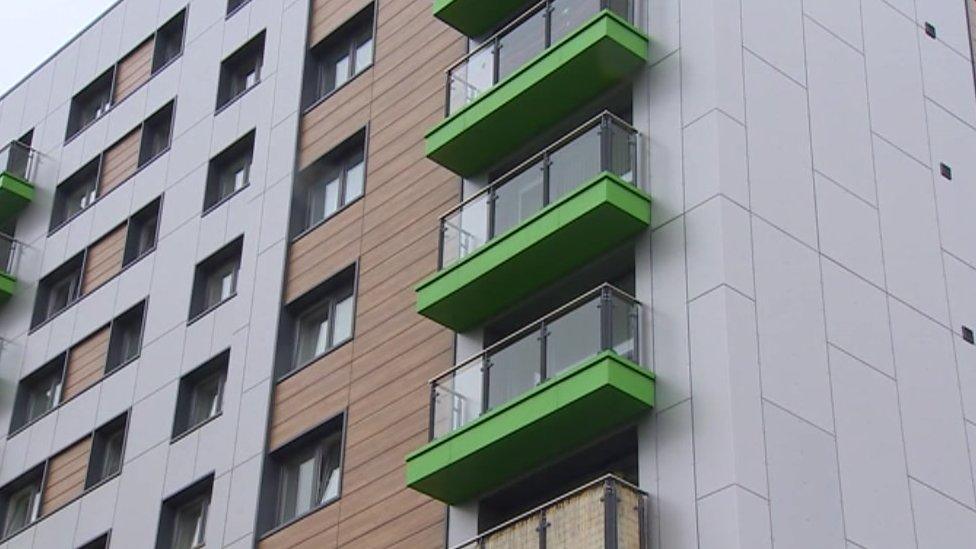
- Published17 May 2018
